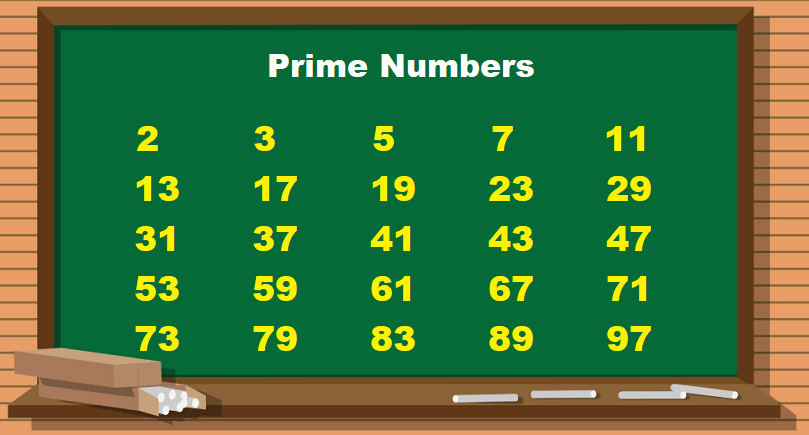Mathematics has many interesting numbers with special properties. One of these types is called prime numbers. Prime numbers have fascinated mathematicians for thousands of years. Although their definition is simple, they are very important in many areas, like cryptography and computer science.
What is a Prime Number?
A prime number is a natural number greater than 1 that cannot be divided exactly by any other numbers except 1 and itself.
In simple words, a prime number has only two divisors: 1 and the number itself.
Example:
- The number 2 is a prime number because the only way to express 2 is as 1 × 2. No other numbers multiply to give 2, so it is a prime number.
- Now, look at the number 4. It can be expressed as 1 × 4, but also as 2 × 2. This means 4 has three divisors (1, 2, and 4), so it is not a prime number.
List of Prime Numbers
Here are some examples of prime numbers between 1 and 100: 2, 3, 5, 7, 11, 13, 17, 19, 23, 29, 31, 37, 41, 43, 47, 53, 59, 61, 67, 71, 73, 79, 83, 89, 97.

Note: 2 is the only even prime number. All other even numbers can be divided by 2, which means they have more than two divisors.
Prime Number Properties
Prime numbers have some interesting properties:
- Infinite Prime Numbers: There is no largest prime number. Prime numbers are infinite, which means you can always find a larger one. This was proven by the ancient Greek mathematician Euclid.
- Building Blocks of Numbers: According to the Fundamental Theorem of Arithmetic, every number greater than 1 is either a prime number or can be written as a product of prime numbers. For example, 12 can be written as 2 × 2 × 3, where 2 and 3 are prime numbers.
- Prime Number Distribution: Prime numbers are not evenly spaced. As numbers get larger, prime numbers become less frequent. The Prime Number Theorem gives an idea of how primes are spread out among large numbers.
Applications of Prime Numbers
Prime numbers are not just theoretical; they have many real-world uses, especially in computer science and cryptography:
- Cryptography: Prime numbers are key to keeping data safe. For example, RSA encryption uses large prime numbers to create secure codes. It’s easy to multiply two prime numbers, but very hard to break them back into their original primes, making it useful for secure communication.
- Hashing in Computer Science: Prime numbers are also used in hashing algorithms, which help store and find data efficiently. Using prime numbers reduces the chance of two pieces of data being stored in the same place, called a “collision.”
Conclusion
Prime numbers may seem simple, but they are very important in both math and the digital world. Understanding prime numbers is a crucial first step in learning more about number theory and other areas of mathematics.

